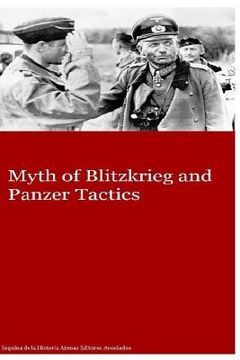Synopsis "Myth of Blitzkrieg and Panzer Tactics (in English)"
In a speech delivered on May 5, Beck rejected Hitler's proposals of April 28. At about the same time anti-German demonstrations took place in Thorn, Katowitz, Lodz and Posen (G 349-417). On May 12 the German community in Poland presented a respectful petition to President Moscicki reviewing the old complaints concerning church and school questions as well as the dismissal of German factory workers -- again with no result. A few days later the German Consul in Lodz reported that German workers had been driven out of certain factories by a Polish mob, that all German places of business and private dwellings had been systematically demolished, and that the police had done nothing to prevent it. Reports from the German Ambassador in Warsaw also revealed that the "German Houses" in Bromberg, Lodz and Tarnowitz had been expropriated and that in seventeen cases the German clergy had been mistreated or their church property destroyed. These outbreaks were the result not only of racial hatred but of Polish propaganda. It was, for instance, widely believed in Poland that crowds of famished German soldiers were daily deserting across the border, that the German war matériel was of doubtful value, and that German foreign policy had suffered one defeat after another. Even among the Polish intelligentsia the relative strength of Germany vis-à-vis Poland was completely misjudged. Nor did the failure of the Anglo-Polish loan negotiations dampen the bellicose ardor of Polish opinion. In July, a slight lessening of the tension in Danzig seemed possible, but by the beginning of August the situation had become extremely critical. In particular, conflicts arose between Warsaw and the Danzig Senate over the question of customs administration (B 42). The Polish Government had notified the Danzig Senate, in a communication which took the form of an ultimatum, that the Danzig authorities must not interfere with Polish customs officials in the execution of their duties (B 43, 46; F 181, 193). When the Reich Government learned of this, it informed Warsaw that a repetition of such peremptory demands on the Danzig Senate, coupled with the threat to use force, would only aggravate German-Polish relations (G 445). Poland sharply rejected this intervention as without legal justification, and informed the Reich that she would regard any interference by it in Danzig "as an aggressive action" (G 446). This statement, made on August 10 by the Polish Undersecretary for Foreign Affairs to the German Chargé d'Affaires in Warsaw, created a very serious situation (G 447; B 47).

